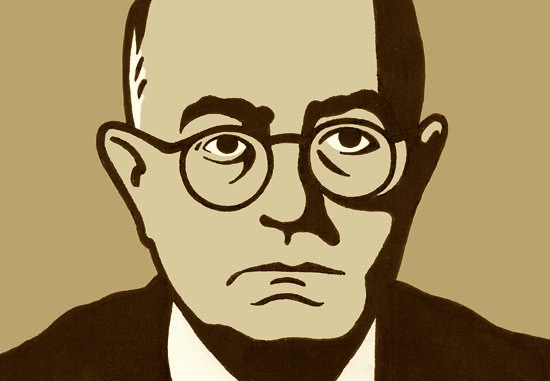
Theodor Adorno emigrated to the United States in the 1930s. A member of the Institute for Social Research (a/k/a the “Frankfurt School”) he’s best known for co-authoring a book entitled Dialectic of Enlightenment with Max Horkheimer. This work (frequently called simply ‘D of E’) is strangely compiled and quite difficult to understand. He spent most of his years in exile as an unapproachable snob, who would frequently write essays about how Jazz (and other savage ‘negro music’) was turning American kids into a bunch of primitive, savages.
His most accessible work is only peripherally aesthetic, and it’s titled Minima Moralia. The title is a hat-tip to Aristotle. This is the book that almost no one has read, which is a shame, because it’s one of my favorite works of contemporary philosophy.
Like any normal man, Adorno realized that we live in a very troubled society. Much of society’s troubles are, in Adorno’s thinking, the result of the social superstructure which unconsciously channels us all into an unfeeling and unthinking conformity. In Minima Moralia, he specifically singled out the inherent brutality and violence of the divorce process, as it was evolving.
Let’s read this brother’s take…
Table and bed.
“As soon as human beings divorce, even the most kind-hearted, friendly and educated ones, a cloud of dust enshrouds and daubs everything it touches. It is as if the sphere of intimacy, the inattentive trust of the common life is transformed into a poisonous substance, once the relationships are broken, in which they rested.”
“What is intimate between human beings is compassion, patience, refuge for personal characteristics. If it is distorted, then the moment of weakness therein hoves into view, and during divorces such a turn towards the outside is unavoidable.”
“Things which were once signs of loving care, pictures of reconciliation, make themselves suddenly self-standing as values and show their evil, cold and pernicious side. After separations, professors break into the dwellings of their wives, in order to carry off objects from the desk, and well-appointed ladies denounce their men for tax-evasion. If marriage afforded one of the last possibilities of constructing humane cells in the inhuman generality, then the generality revenges itself in its disassembly [Zerfall], by taking control of that which was apparently an exception, the alienated social orders of justice and property which underlies it and which pours scorn on those who thought themselves secure from it.”
“Precisely that which is safeguarded turns into the cruel requisite of being sacrificed. The more “generously” the lovebirds originally behaved with each other, the less they thought of ownership and obligation, the more horrid the humiliation. For it is even in the realm of the juridically undefined, in quarrel, defamation, in the endless conflict of interests flourishes.”
“Everything shadowy, on whose ground the institution of marriage is raised, the barbaric access of the man to the property and labor of the woman, the not less barbaric sexual oppression, which tendentially compels the man to take lifelong responsibility for someone with whom he once took pleasure in sleeping with – this crawls out of the cellars and fundaments into the open, when the house is demolished.”
“Those who once experienced the good generality in the restricted belonging to each other, are now compelled by the society to consider themselves scoundrels and to learn, that they are the same as the generality of unrestricted nastiness outside. The generality proves itself in divorce as the mark of shame of the particular, because the particular, marriage, is not capable of realizing the true generality in this society.”
I’ll agree more the Frankfurt guy’s take about divorce introducing disorder…than so call Christians who think it’s a good thing to promote.
Although my favorite was reading the Catholic catechism on it calling it a ‘plague on society’.